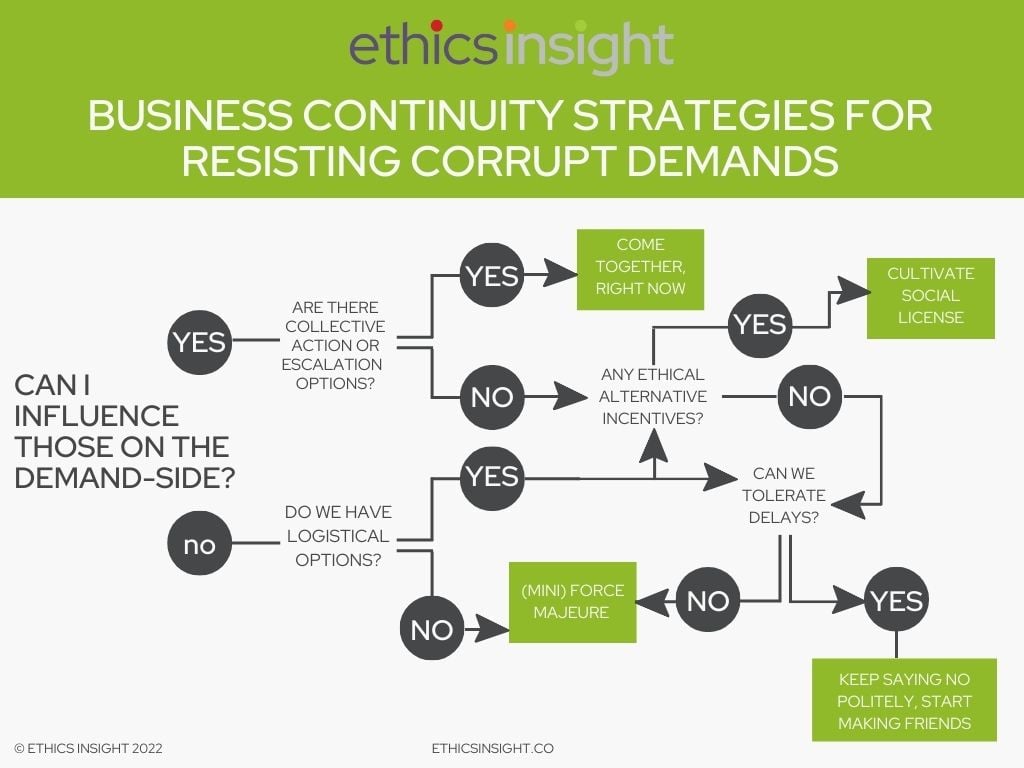In a podcast last week, I was asked how actually to manage corruption.
Some mega-MNCs may be able to bat away corrupt intent or requests using connections and sheer economic heft. But the rest of us (90% by some estimates) must be more creative. Here are a few ideas for starters:
🚦 Avoid – Physical, strategic, or technical avoidance work. Is there another route (physical or to market)? Another official, maybe in another office, who might be more amenable? Can you avoid extortive requests by timely and impeccably correct submissions (capricious corrupt types prey on urgency and inaccuracy)?
🚦 Resist – Is stalling an option? Corruption is illegal in most places. If you politely but compellingly refuse, citing approvals, red tape, or act confused (loudly), you might become too-hard-a-target. Be careful here. If the officials use threats, coercion, sextortion, and all the other horrors, don’t expect or ask your people to preserve your books & records at the expense of their wellbeing.
🚦 Disincentivise – Consider why the other party is making the corrupt demand. Is it borne of financial necessity (e.g., the official on $250 a month in a country with 40% inflation)? Is it opportunism? The conversation that follows the diagnosis of motive is important. I’ve seen underpaid customs officers placated by a 1-hour respite in an air-conditioned port operator’s canteen, just as I’ve witnessed a religious elder dismantle a rogue police officer’s moral argument for impromptu tolls.
🚦 Transfer – Why are you managing this interaction? Could someone else do it ethically? Paying an agent is seldom the answer – we can’t pass bribery risks on. But you can structure agreements and deals such that pesky licenses, approvals, access requests (and the rest) are handled by a local counterparty aligned with the would-be corruptors.
🚦 Escalate – When all else fails (or if you have ethically minded allies in government), raise the concern. Beware retaliation here. But remember that overt corruption is increasingly unpalatable, even for despots. Younger generations, cursed with impaired infrastructure, education, healthcare, and other services are moving against corrupt elites.

Whatever strategy you choose, make sure you’re considering the second-order consequences. Planning prevents poor performance.
